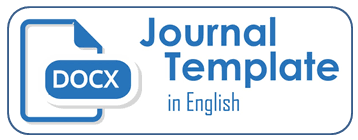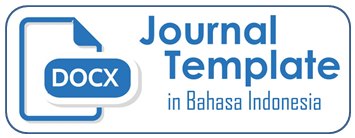EFEK DIREKTUR KOMITE AUDIT YANG TUMPANG TINDIH DAN PENGHINDARAN PAJAK DENGAN INVESTOR INSTITUSIONAL SEBAGAI VARIABEL MODERASI
DOI:
https://doi.org/10.26486/jramb.v9i1.3034Keywords:
komite audit, rangkap jabatan, investorAbstract
Penelitian ini bertujuan untuk menguji pengaruh tumpang tindih/rangkap jabatan anggota komite audit, direktur/ketua komite audit terhadap penghindaran pajak dengan investor institusional sebagai variable moderasi. Populasi yang digunakan dalam penelitian ini adalah seluruh perusahaan manufaktur yang terdaftar di Bursa Efek Indonesia (BEI) dari tahun 2015 sampai dengan 2020. Pemilihan sampel dengan purposive_sampling_method. Sampel yang digunakan 131 perusahaan manufaktur yang yang memenuhi kriteria, sehingga data yang didapat sejumlah 786. Sampel diperoleh dari website perusahaan itu sendiri dan juga website Bursa Efek Indonesia. Penelitian menggunakan model regresi liner berganda untuk menguji setiap variabel terhadap penghindaran pajak. Bukti empiris menunjukkan bahwa anggota komite audit yang rangkap jabatan berpengaruh negatif signifikan terhadap penghindaran pajak dan ketua komite audit yang rangkap jabatan berpengaruh positif signifikan terhadap penghindaran pajak. Pada variabel investor institusional tidak mampu memoderasi anggota dan ketua komite audit yang rangkap jabatan terhadap penghindaran pajak. Implikasi dari penelitian ini dapat memberikan masukan bagi praktisi dan regulator dalam pengembangan kebijakan perpajakan yang lebih efektif dan transparan.References
Al Lawati, H., & Hussainey, K. (2020). Disclosure of forward-looking information: Does audit committee overlapping matter? International Journal of Accounting, Auditing and Performance Evaluation. In Press.
Al Lawati, H., & Hussainey, K. (2021). Risk and Financial Management Do Overlapped Audit Committee Directors Affect Tax Avoidance? https://doi.org/10.3390/jrfm1410
Alshabibi, B. (2021). The Role of Institutional Investors in Improving Board of Director Attributes around the World. Journal of Risk and Financial Management, 14(4), 166. https://doi.org/10.3390/jrfm14040166
Armstrong, C. S., Blouin, J. L., Jagolinzer, A. D., & Larcker, D. F. (2015). Corporate governance, incentives, and tax avoidance. Journal of Accounting and Economics, 60(1), 1–17. https://doi.org/10.1016/j.jacceco.2015.02.003
Beer, Sebastian, Ruud De Mooji, & Li Liu. (2020). International corporate tax avoidance: A review of the channels, magnitudes, and blind spots. Journal of Economic Surveys 34:, 660–688.
Chaudhry, N. I., Roomi, M. A., & Aftab, I. (2020). Impact of expertise of audit committee chair and nomination committee chair on financial performance of firm. Corporate Governance (Bingley), 20(4), 621–638. https://doi.org/10.1108/CG-01-2020-0017
Dyreng, S. D., Hanlon, M., & Maydew, E. L. (2010). The effects of executives on corporate tax avoidance. Accounting Review, 85(4), 1163–1189. https://doi.org/10.2308/accr.2010.85.4.1163
Fich, E. M., & Shivdasani, A. (2006). Are busy boards effective monitors? Journal of Finance, 61(2), 689–724. https://doi.org/10.1111/j.1540-6261.2006.00852.x
Furqaan, A., Annuar, A., Hamdan, H., Majdi, H., & Rashid, A. (2019). Overlapping Memberships On the Audit and Other Board Comuittees: Impacts On Financial Reporting Quality. In Asian Journal of Accounting Perspectives (Vol. 12, Issue 1).
GarcÃa-Meca, E., Ramón-Llorens, M. C., & MartÃnez-Ferrero, J. (2021). Are narcissistic CEOs more tax aggressive? The moderating role of internal audit committees. Journal of Business Research, 129, 223–235. https://doi.org/10.1016/j.jbusres.2021.02.043
Ghafran, C., & Yasmin, S. (2018). Audit committee chair and financial reporting timeliness: A focus on financial, experiential and monitoring expertise. International Journal of Auditing, 22(1), 13–24. https://doi.org/10.1111/ijau.12101
Handayani, R. (2018). Pengaruh Return on Assets (ROA), Leverage dan Ukuran Perusahaan Terhadap Tax Avoidance Pada Perusahaan Perbankan yang Listing di BEI Periode Tahun 2012-2015.
Hsu, P. H., Moore, J. A., & Neubaum, D. O. (2018). Tax avoidance, financial experts on the audit committee, and business strategy. Journal of Business Finance and Accounting, 45(9–10), 1293–1321. https://doi.org/10.1111/jbfa.12352
Huang, W., Ying, T., & Shen, Y. (2018). Executive cash compensation and tax aggressiveness of Chinese firms. Review of Quantitative Finance and Accounting, 51(4), 1151–1180. https://doi.org/10.1007/s11156-018-0700-2
Jbir, S., Neifar, S., & Makni Fourati, Y. (2021). CEO compensation, CEO attributes and tax aggressiveness: evidence from French firms listed on the CAC 40. Journal of Financial Crime, 28(4), 1141–1160. https://doi.org/10.1108/JFC-10-2020-0202
Jensen, M. C., & Meckling, W. H. (1976). Theory of the firm: Managerial behavior, agency costs and ownership structure. Journal of Financial Economics, 3(4), 305–360. https://doi.org/https://doi.org/10.1016/0304-405X(76)90026-X
Khemakhem, H., & Fontaine, R. (2019). The audit committee chair’s abilities: Beyond financial expertise. International Journal of Auditing, 23(3), 457–471. https://doi.org/10.1111/ijau.12173
Kovermann, J., & Velte, P. (2021). CSR and tax avoidance: A review of empirical research. Corporate Ownership and Control, 18(2), 20–39. https://doi.org/10.22495/cocv18i2art2
Kovermann, jost, & patrick, velte. (2019). The impact of corporate governance on corporate tax avoidance—A literature review. Journal of International Accounting, Auditing and Taxation 36:, 1–29.
KPMG. (2017). Is Everything under Control? 2017 Global Audit Committee Pulse Survey. Available Online: Https://Boardleadership. Kpmg.Us/Relevant-Topics/Articles/2017/01/2017-Global-Audit-Committee-Pulse-Survey.Html.
Lanis, R., Richardson, G., Liu, C., & McClure, R. (2019). The Impact of Corporate Tax Avoidance on Board of Directors and CEO Reputation. Journal of Business Ethics, 160(2), 463–498. https://doi.org/10.1007/s10551-018-3949-4
Nawawi, H. (2005). Manajemen Sumber Daya Manusia Untuk Bisnis yang Kompetitif. Gajah Mada University Press Anggota IKAPI.
Prasetyo, P., & Pramuka, B. A. (2018). Pengaruh Kepemilikan Institusional, Kepemilikan Managerial dan Proporsi Dewan Komisaris Independen Terhadap Tax Avoidance.
Pratomo, D., & Risa, A. R. (2021). Pengaruh Kepemilikan Institusional, Komisaris Independen dan Komite AUdit Terhadap Penghindaran Pajak. JAK (Jurnal Akuntansi) Kajian Ilmiah Akuntansi, 8(1), 91–103. https://doi.org/10.30656/jak.v8i1.2487
Richardson, G., Lanis, R., & Taylor, G. (2015). Financial distress, outside directors and corporate tax aggressiveness spanning the global financial crisis: An empirical analysis. Journal of Banking and Finance, 52, 112–129. https://doi.org/10.1016/j.jbankfin.2014.11.013
Richardson, G., Taylor, G., & Lanis, R. (2013). The impact of board of director oversight characteristics on corporate tax aggressiveness: An empirical analysis. Journal of Accounting and Public Policy, 32(3), 68–88. https://doi.org/10.1016/j.jaccpubpol.2013.02.004
Schmidt, J., & Wilkins, M. S. (2013). Bringing darkness to light: The influence of auditor quality and audit committee expertise on the timeliness of financial statement restatement disclosures. Auditing, 32(1), 221–244. https://doi.org/10.2308/ajpt-50307
Tandean, V. A., & Winnie, W. (2016). The Effect of Good Corporate Governance on Tax Avoidance: An Empirical Study on Manufacturing Companies Listed in IDX period 2010-2013. Asian Journal of Accounting Research, 1(1), 28–38. https://doi.org/10.1108/AJAR-2016-01-01-B004
Taylor, G., & Richardson, G. (2013). The determinants of thinly capitalized tax avoidance structures: Evidence from Australian firms. Journal of International Accounting, Auditing and Taxation, 22(1), 12–25. https://doi.org/10.1016/j.intaccaudtax.2013.02.005
Wen, W., Cui, H., & Ke, Y. (2020). Directors with foreign experience and corporate tax avoidance. Journal of Corporate Finance, 62. https://doi.org/10.1016/j.jcorpfin.2020.101624
Wijaya, S., & Rahayu, F. D. (2021). Pengaruh Agresivitas Transfer Pricing, Penggunaan Negara Lindung Pajak dan Kepemilikan Institusional Terhadap Penghindaran Pajak. Jurnal Informasi, Perpajakan, Akuntansui Dan Keuangan Publik, 16(2), 245. https://doi.org/10.25105/jipak.v16i2.9257
Wilde, jaron, & ryan wilson. (2018). Perspectives on corporate tax planning: Observations from the past decade. The Journal of the American Taxation Association 40: , 63–81.
Yuliawati, Y., & Sutrisno, P. (2021). Faktor Yang Mempengaruhi Penghindaran Pajak. Jurnal Informasi, Perpajakan, Akuntansi Dan Keuangan Publik, 16(2), 203. https://doi.org/10.25105/jipak.v16i2.9125
Downloads
Published
Issue
Section
License
Authors who publish with (JRAMB) Jurnal Riset Akuntansi Mercu Buana agree to the following terms:
Authors retain copyright and grant the JRAMB right of first publication with the work simultaneously licensed under a Creative Commons Attribution License (CC BY-SA 4.0) that allows others to share (copy and redistribute the material in any medium or format) and adapt (remix, transform, and build upon the material) the work for any purpose, even commercially with an acknowledgement of the work's authorship and initial publication in JRAMB. Authors are able to enter into separate, additional contractual arrangements for the non-exclusive distribution of the journal's published version of the work (e.g., post it to an institutional repository or publish it in a book), with an acknowledgement of its initial publication in JRAMB.
Authors are permitted and encouraged to post their work online (e.g., in institutional repositories or on their website) prior to and during the submission process, as it can lead to productive exchanges, as well as earlier and greater citation of published work (See The Effect of Open Access).












